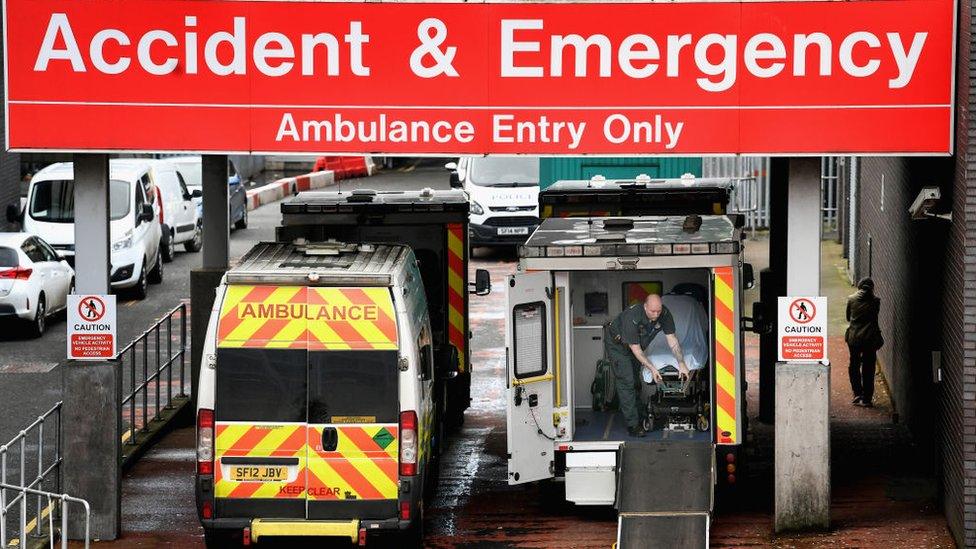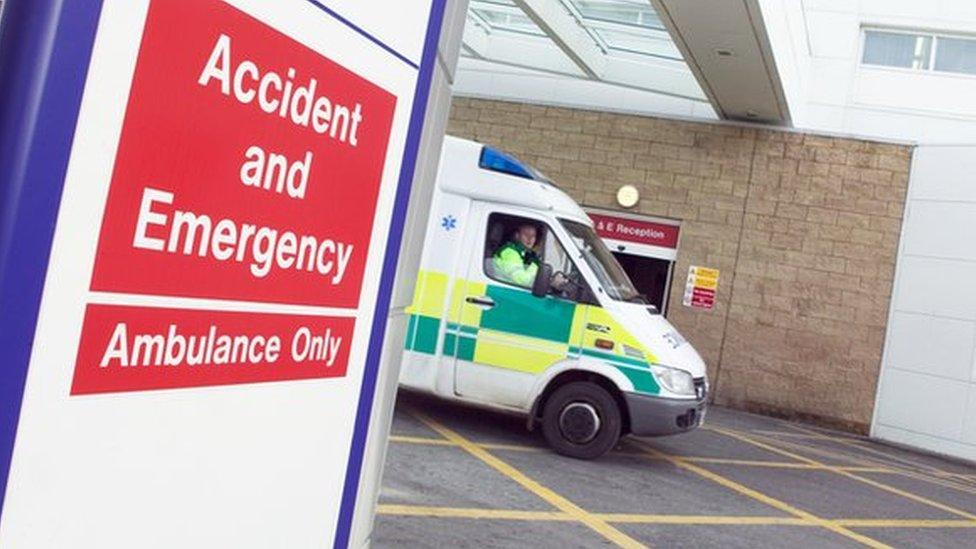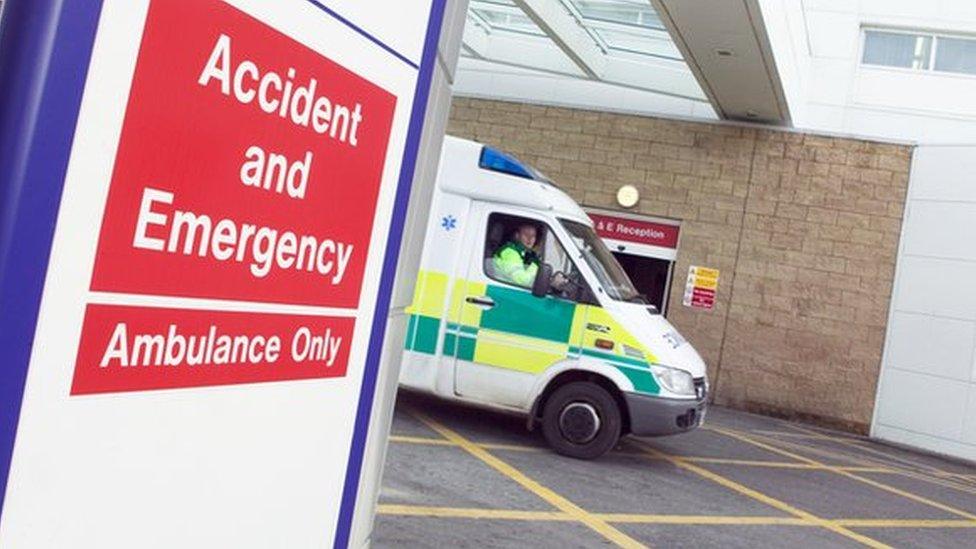A&E changes aim to send patients to 'best care'
- Published

Changes to the way some patients access emergency hospital treatment are due to be rolled out across Scotland.
Medical experts say one in five of those who go to A&E could get better care elsewhere.
Under the new scheme, seriously ill patients should still ring 999 but those who need urgent, but not life-saving, treatment will be asked to call 111 rather than turn up at A&E.
The aim is to send more people to the right place and avoid long A&E waits.
The Scottish government says changes are essential to help hospitals cope with life-threatening conditions.
It will also keep patients safe from Covid.
Patients will be asked to call 111 and they could be given an appointed time to go to A&E, get help over the phone or be directed to more appropriate care.
In October it was announced the proposals would be tested in NHS Ayrshire and Arran.
Dr John Thomson, vice president of the Royal College of Emergency Medicine and a consultant at Aberdeen Royal Infirmary, says the changes are about trying to help people with non life-threatening needs.

Options under the new system include telephone and video consultations.
Dr Thomson says about 20% of patients attending A&E are "self presentations" who have not been referred there by other parts of the healthcare system.
He said: "People think the best care they can get is in an emergency department but that's not true for all problems.
"This is to ensure we have the capacity in the emergency department to deal,with those patients who need us most, so those patients who've had strokes or heart attacks that need immediate life-saving care.
"This is also to ensure people who need an emergency department can be brought at a set time and not brought to a crowded emergency department."
The move comes after it emerged earlier this year that the number of patients waiting more than 12 hours in Scottish hospitals had hit record levels.
In October, Health Secretary Jeane Freeman said the changes, which will be supported by a £20m investment programme and a major public information campaign, would ensure A&E provides the "fastest and most appropriate care" for people when they really need it.
She added: "Help us keep you and our NHS safe by making the right call at the right time to access the right care for you and your family."
- Published7 April 2020

- Published7 January 2020
